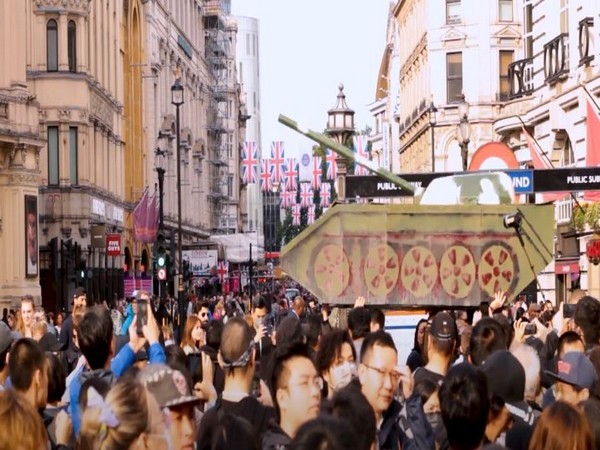Dissent in dragon land
The dragon is in trouble. People across large parts of China are protesting,
ignoring threats of detention and torture. Apparently, the reasons are economic.
However, for a totalitarian regime, this is as good as challenging President Xi
Jinping’s command. Naturally, Beijing is nervous.
Homebuyers in 91 cities, comprising 24 out of 31 provinces, have stopped
paying banks equal monthly installments (EMI) against home loans. Banks made
payments to the developers who failed to deliver 13 million apartments on schedule.
Economically, the protests can cost China hundreds of billions of dollars. The
bankrupt real-estate developers will be in deeper trouble. Roughly four percent of
the total bank loan in the country may turn bad, wiping out $200 billion to $300
billion of wealth (Fortune, July 18, 2022).
Over the last two decades, 70 percent of household savings were directed to
property, contributing one-third of China’s gross domestic product (GDP). Any
slowdown in the real estate sector would, therefore, drag the economic growth
further down.
China’s economy could barely avoid a contraction in the June quarter, the
protests may make recovery in the September quarter tougher. But that is the least
of the considerations of Beijing which damaged its thriving internet enterprises
packing to establish political control.
Chinese ride-hailing giant Didi Global was forced to delist from the New York
Stock Exchange. Foreign investors in the internet economy were scared when
Beijing pushed Chinese Communist Party (CCP) cells into the management and
brought laws that forced Chinese employees to work as intelligence agents.
“Overseas investors shed more than $150bn in China-based yuan-
denominated assets in the first quarter of this year, the largest decline on record.
Roughly $300bn could exit the country this year, more than double last year’s
outflow of $129bn,” Al Jazeera reported on July 21, quoting the Washington-based
Institute of International Finance.
But Chinese leadership is more worried that the mass protests are spreading
like wildfire. ‘Fortune’ reports that as of July 12, home buyers in 22 cities stopped
paying EMI affecting 35 property projects. The number of affected projects reached
over 220 in 80 cities on July 18. A more recent report said 300 projects in 91 cities
were impacted.
What concerns Beijing the most is that the ‘mortgage-strike’ or ‘EMI-strike’
is gaining momentum irrespective of severe state action against the protestors
demanding their money back from the failed banks. Since April four banks failed in
China wiping out depositors’ money.
Noticeably, in April, the Henan branch of the Chinese central bank, the
People’s Bank of China, issued a circular that described depositors’ money asinvestment products unsuitable for withdrawal. To put it straight, the notification
froze the assets of the common man.
Saving money in banks or financial products is a relatively new phenomenon
in China. In the past, the property was literally the only mode of investment. As the
Xi Jinping administration restricted credit flow to the overleveraged property
players, citizens were forced to look for other avenues.
Worldwide such savings came to the rescue of people during the severe
economic destruction over the last two years leading to job loss etc. China is
suffering too. According to Beijing’s Tsinghua University professor Zheng
Yuhuang, 4,60,000 companies pulled down shutters in the first half of 2022.
Roughly 3.1 million industrial and commercial households (small enterprises)
were written off, enterprise liquidation soared 23 per cent year on year, 10.76 million
college graduates have entered the society, with great employment pressure, and 80
million young people are unemployed. (July 21, ANI).
Clearly, the pandemic created huge stress on the personal finance of common
Chinese and it is no crime for people to seek withdrawal of the money they once
saved with banks. But Beijing is denying that access, apparently to save the banks.
No democratic country could have dared to issue strictures denying
withdrawal in such a scenario. But China is not a democracy and, the Xi
administration thought they can pull any punches. People resisted.
Zhengzhou in Henan province was the first city to erupt in protests. None
cared for them until July 10 when the citizens organised a massive demonstration
outside the People’s Bank of China. The Chinese government sent plain-clothed
police to suppress it. Protestors were beaten up mercilessly and detained.
But protests didn’t stop. It gained momentum. Alongside the protest against
bank fail, Zhengzhou became the epicentre of the ‘mortgage strike’ in China.
Clashes between the police and the protestors became a routine. So much so that
Beijing called the military to scare the protestors.
What was unnerving for Xi is that the episode coincided with the historic
protest and suppression of dissent at Tiananmen Square in Beijing in 1989. In
repetition to 1989, military tanks rolled out on the streets of Zhengzhou in July 2022.
Among the differences from 1989, this time there was no human tragedy.
‘Mortgage-strike’ had spread across the country. The protestors want to hit Beijing
where it hurts the most – economy. And, Xi was scared that any misstep will add
fuel to the protests.
But that doesn’t mean that Beijing is walking the path of reconciliation as
democratically elected governments do. CNN reported that Xi is acting against the
live-streamers (“Here today, gone tomorrow: China’s vanishing live-streamers,”
CNN Business, July 2022). A lifestyle blogger vanished simply because he showed
a tank-shaped ice cream.













